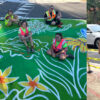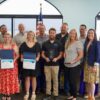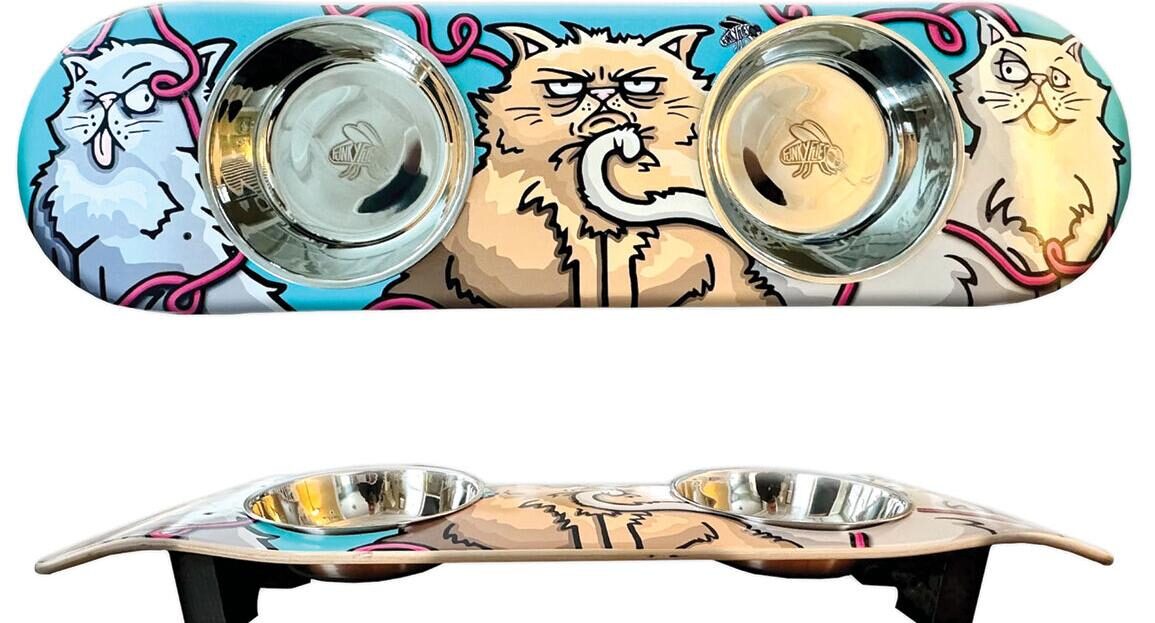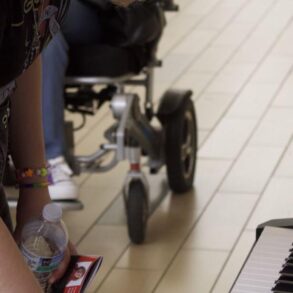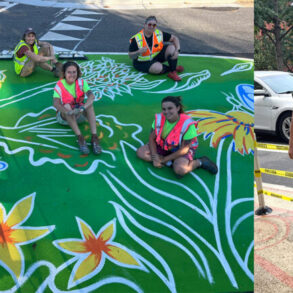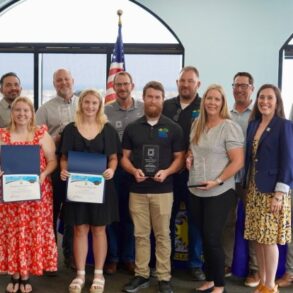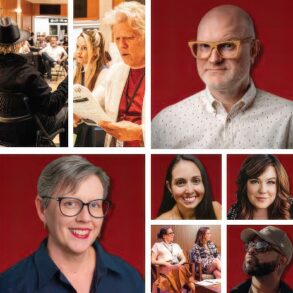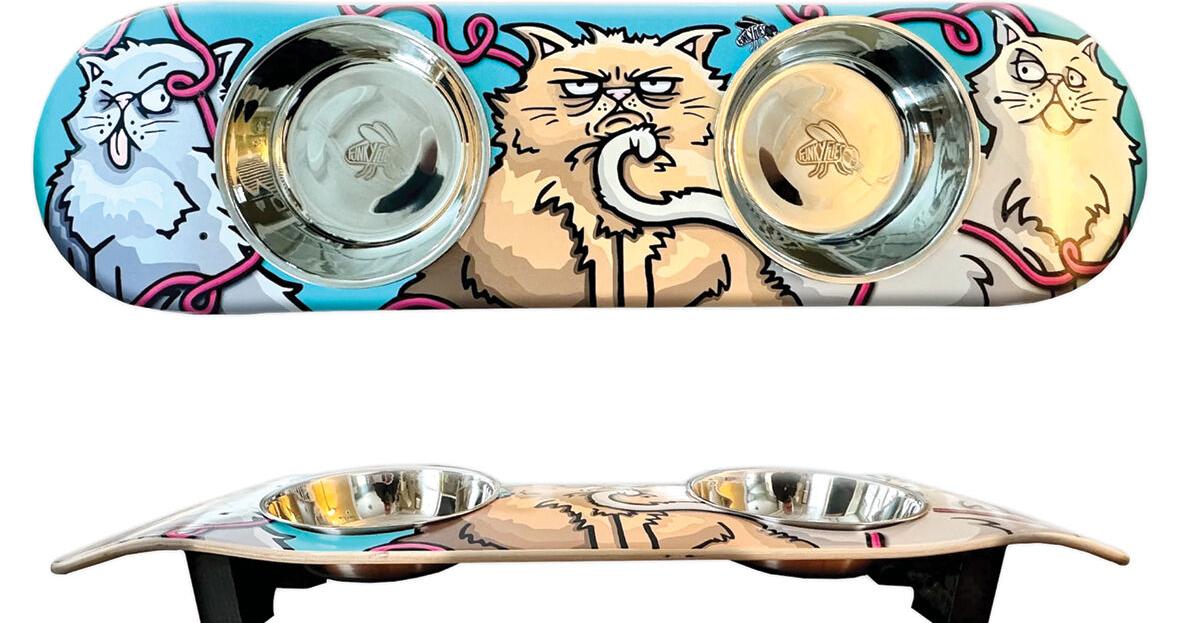
Jonathan Gicewicz and Josh Leggett both live in Vermont, but they met in the virtual world — as avid traders of cryptocurrency.
“I had been an early crypto investor, and I had met a lot of people through it and that’s how I met Josh,” said Gicewicz, a 47-year-old Rutland resident and owner of a graphic design business, JEG Design.
Leggett, 41, a Hinesburg native who now lives in Richmond, has worked primarily in construction and sales for a major home services company. After meeting Gicewicz in the crypto realm, he joined the fellow Vermonter in a new business venture that’s grounded in real products. The two realized they not only shared a love of crypto trading but also merchandise with trend-driven, street-inspired designs.
Gicewicz founded Funky Flies in 2020 to develop real art by artists — not just virtual renditions of work — and apply it to products for use in the real world. His co-founder in the business, artist Lisa Sotero, 54, creates the designs for all Funky Flies merchandise. Their bestseller, the Cat and Dog SkateBowl, embeds stainless steel pet feeding bowls in colorful skateboard decks. The company also produces coloring books and clothing, bath towels and bottles of bug spray.
Sotero’s art is the backbone of the company, which sells only through its website. On a video call with the three partners, Sotero described her style as low-brow, combining bright colors, wild graphics and graffiti-reminiscent prints.
“Everything you see has been hand-drawn at one time or another,” Leggett, marketing manager for Funky Flies, said.
The Funky Flies team works to keep their business focused on community and the human design process, straying away from the trend of art created by artificial intelligence.
Sotero said her artistic process starts with pen and paper. Then she moves to the computer to finalize her designs, adding vivid yellows, vibrant blues and neon pinks to bug-eyed animals and psychedelic images. “You can’t get the same quality with AI (artificial intelligence),” she said.
Gicewicz, Sotero and another partner who is no longer working with the company started their collaboration in the world of cryptocurrency through NFTs, or non-fungible tokens. An NFT is a digital representation of a real item, such as a work of art or media. An NFT is unique to that singular item and cannot be copied, and its rarity gives it value in the trading market.
Before turning to tangible products, Funky Flies launched in the form of more than 125 Sotero art pieces for sale as NFTs for anywhere from $80 to $3,000, eventually earning the team enough money to give to organizations dedicated to social change.
For their first philanthropic foray, the owners took some of their banked crypto funds to donate 100 skateboards, complete with wheels and trucks, to the Ugandan Skateboard Society, an entity devoted to “spreading the joy of skateboarding worldwide,” according to the Funky Flies website.
The Vermont entrepreneurs say they see skateboarding as a tool to unite people across the world via the shared love of the sport. They sent 21 boxes of goods worth $50,000, Gicewicz said, calling it “one of the largest donations in Ugandan history.”
They left the crypto world to shift to merchandise to bring in a broader audience than the NFTs alone, Gicewicz and Leggett say. Funky Flies sells a range of products featuring Sotero’s art: hoodies, puzzles, yoga mats and mugs. The items are made by multiple suppliers both inside and outside Vermont, according to Leggett, who says he assembles the skateboard decks himself in Richmond.
The founders strive to give customers a sense of fulfillment through their support of a small, independent business.
Frank Herrera has known the Funky Flies founders since their NFT start and now purchases their skateboards, one of which was hanging on the wall behind him during a video interview.
“For me, customer service speaks loudly for the ethics and the atmosphere of a company, and for Funky Flies, it is top-notch,” Herrera said. “They’re approachable. They’re real people.”
The three partners said they’d like to reach more consumers who connect with the artwork. They also want to continue with philanthropy, giving back to communities in Vermont and beyond. They plan to grow Funky Flies’ business through small-scale social media campaigns and local and national partnerships, Leggett said.
“It’s small right now, but we’ve got some big ideas going forward,” he said. “It’s been a fun little ride so far and with more to come.”
The Community News Service is a program in which University of Vermont students work with professional editors to provide content for local news outlets at no cost.
This post was originally published on this site be sure to check out more of their content


